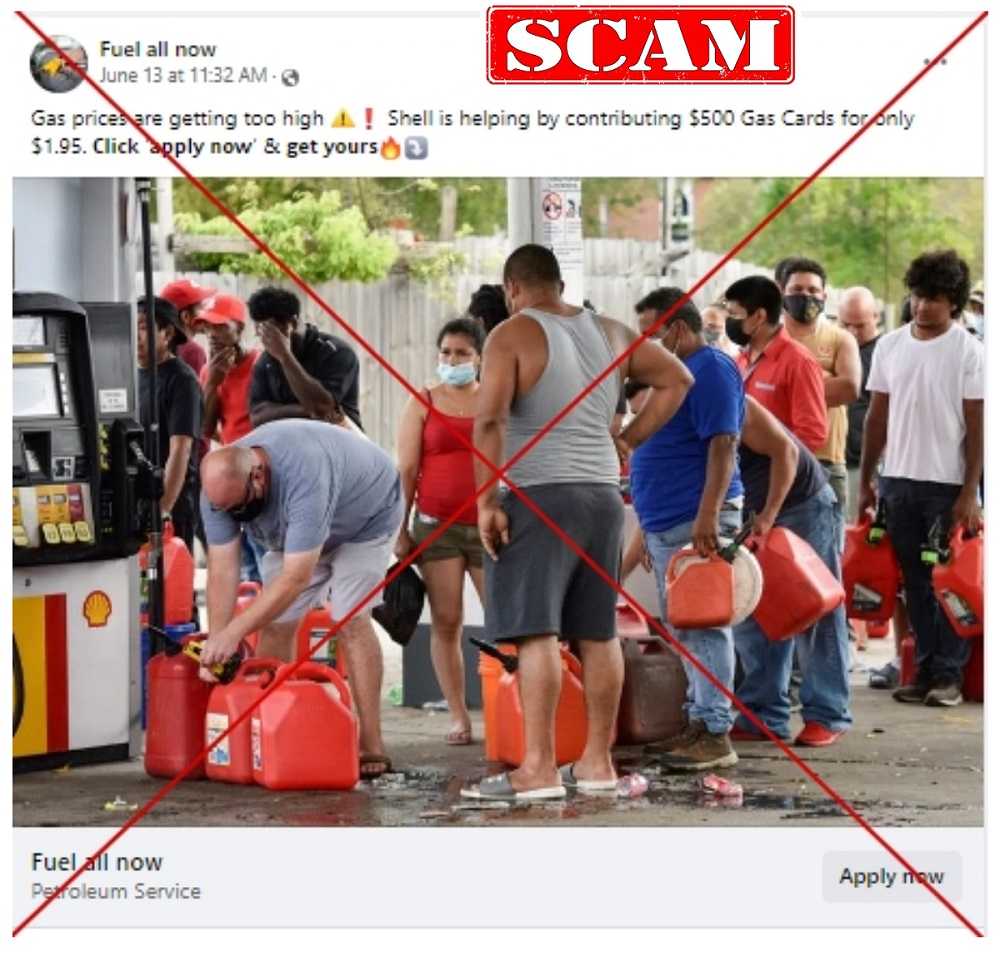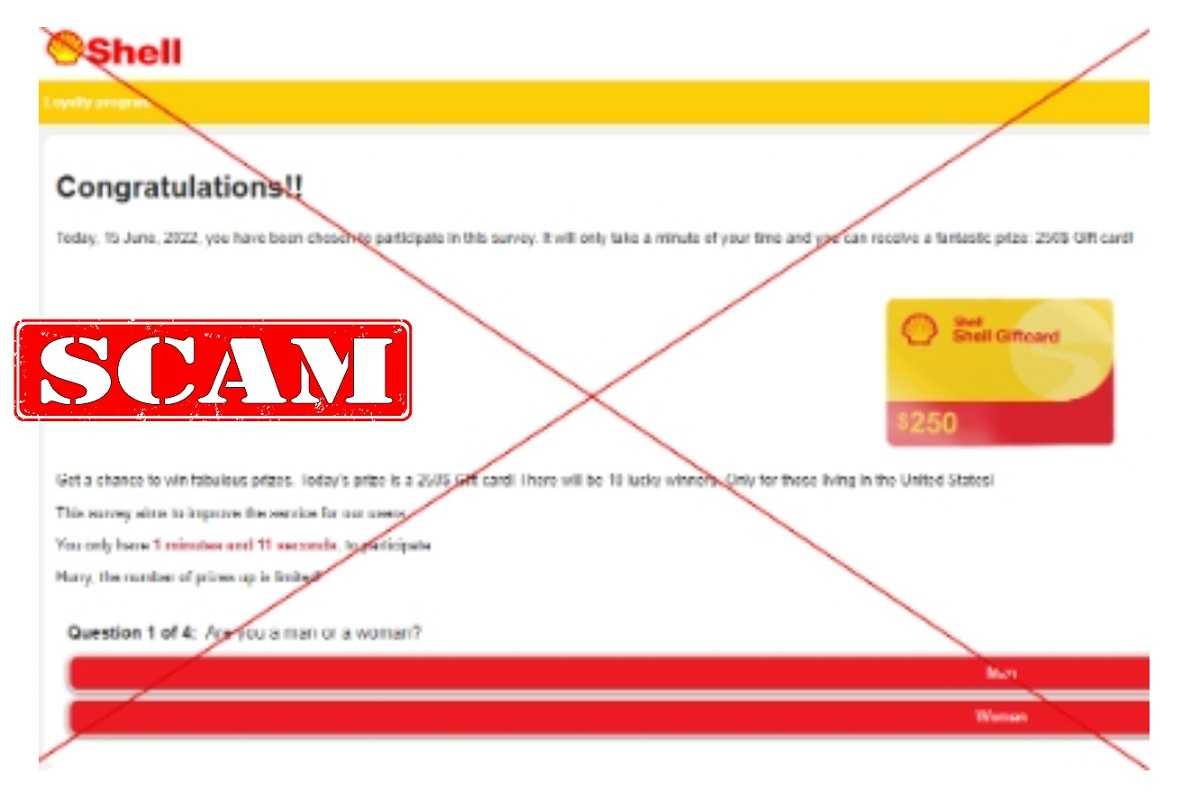You've Won A Free Gas Card And Fraud, For A Small Fee
March 1, 2025
We are all kind of tired of the high gas prices right now, no matter where we live or what we drive. Most visits to the fuel pump can tick up more than $100 per tank. Then, a couple of weeks later for most of us, we have to fill up again and it’s likely to be even more. Coupled with high food prices and high pretty much everything else, we would all love some financial relief for the things we need to make it through the week. Scammers are counting on us all getting fed up with high fuel prices and are luring us into fraud with a new fuel gift card scam.
It’s made the rounds on Facebook lately, but it’s likely to be seen on pretty much any social media site, eventually. They claim that by clicking a link and answering a few questions, you can get a gas card, perhaps worth a whopping $500. But the catch? It’ll cost you a small shipping fee. What happened to “free?” Anyway, once you pay the fee, they claim they will mail you the card. However, to pay the fee, they need your payment card information.

Don’t fall for it. It doesn’t work that way. This scam has become so widespread that the company, AFP Fact Check called up Exxon to verify it. As expected, the fuel giant indeed confirmed that it’s false. A spokesperson said "We are aware of fraudulent Facebook ads that are falsely representing gas card promotions from ExxonMobil. We are not providing the services as claimed." It’s not just ExxonMobil being used in these, but other fuel companies too, such as Shell and Chevron.
 Avoid tossing your money down the tank
Avoid tossing your money down the tank
- If it sounds too good to be true, it is. It’s really that simple.
- If they want your payment card information, it’s a sign it’s likely a scam. You should not have to pay to get a “free” gift.
- If you feel pressured into something, it’s likely a scam. Scammers want you to react quickly, before you have a chance to realize they’re ripping you off.
One person who fell for it said they took the shipping fee and a few days later, $89.95 disappeared from the account. When she called her card company to dispute it, they removed it, but the same amount was charged again the next day. Save yourself and your payment card company some hassle and don’t give away your information in the first place. Go ahead and swear a little while you watch those numbers rise, but then just pay for the gas.
